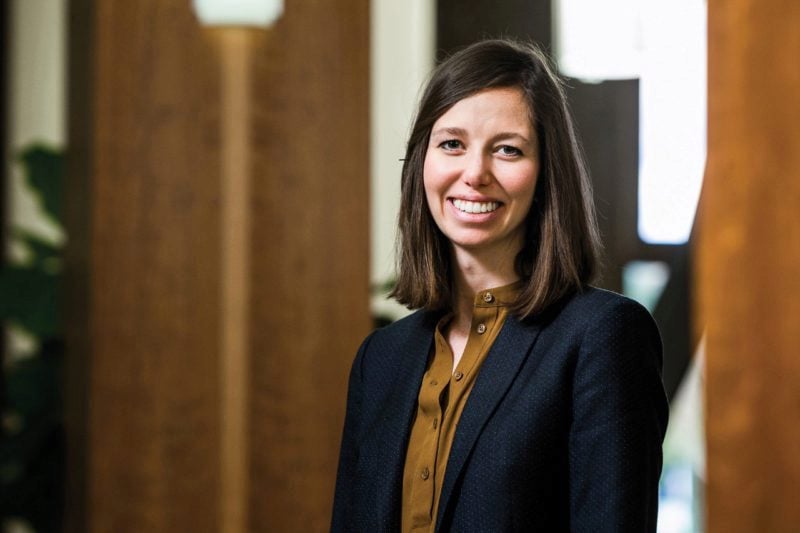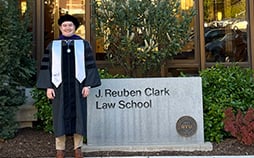When Doors Are Opened
For Sarah Johns, a 2L student from Huntington Beach, California, attending law school and participating in competitions has improved both her knowledge and her spirituality.
Change people's lives at home and around the world
February 2017

What did you do over the summer? In 2015 BYU Law School student Brooke Ellis filed a bill in Congress.
Ellis spent two months last year interning with Utah Senator Mike Lee and the Senate Judiciary Committee, and prior to that, she had an internship preparing trials at the U.S. Department of Justice.
Ellis has always wanted to be a public servant, she says, and she pursued a law career because she sees it as a way to help people. A Jack P. Peterson externship grant from BYU’s J. Reuben Clark Law School made her summer experience a reality. “I wouldn’t have been able to pursue my interests and dreams without the funding that really made it possible. It was life-changing for me,” she says.
Help also came from law professor Michalyn Steele and BYU Law School dean Gordon Smith, who guided and advised Ellis as an undergraduate student when she was considering law school. “Without Professor Steele and Dean Smith mentoring me, I wouldn’t have known what opportunities were available to me,” Ellis says. “They were really instrumental in shaping my career path and helping me figure out what I was good at and what I liked.”

For Sarah Johns, a 2L student from Huntington Beach, California, attending law school and participating in competitions has improved both her knowledge and her spirituality.

“Before I got to law school, I interned at a startup business; I loved and cherished the entrepreneurship spirit there. When I came to law school, I thought I had to let go of the startup dream.”

William Emery knew ever since he participated in a mock trial at age 12 that he wanted to go to law school. “BYU Law is actually the only school I applied to,” he says.